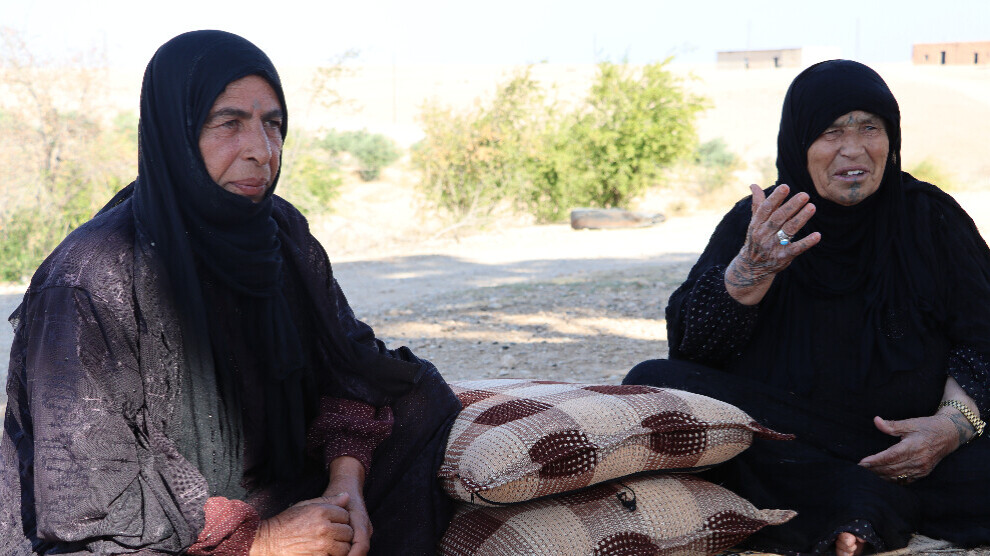A Life Intertwined with Nature in the Village
Women living in villages express their integration with nature, and that this life gives them a new meaning.

NUR EL-AHMED
Raqqa - While the city life of capitalist modernity affects people in every way, women living in rural areas maintain their traditional lifestyle.
In contrast to the noisy and busy life of cities, women see village life as a healthier way of life, more in harmony with nature, and with stronger human connections.
Rural life is economically based on traditional methods such as agriculture, animal husbandry, and fishing. People, especially in villages near rivers, thrive in a natural and healthy environment. This distinguishes their lives. Despite engaging in demanding agricultural work, villagers prefer their lifestyle because of their closeness to nature.
They live in harmony with nature
Rudeyne Muhammed, a 50-year-old mother of seven sons and three daughters, compares rural and city life, saying:
“Our village life is quiet and simple, which makes it different from the city. The city is crowded and noisy. Although our work is tiring and difficult, being in touch with nature has integrated us with it. We have become accustomed to its challenges and accepted it as a part of our lives. This gives us a spiritual value.”
‘Women are still the ones who bear the burden’
Rudeyne Muhammed, noting that their lives were harder in the past, says, “Life was harder in the past. There were no means of transportation or agricultural equipment. Women had a much heavier burden. Housework, caring for family members, raising livestock, agricultural work, harvesting, plowing the land, and fetching water from long distances all fell on the woman’s shoulders.”
Rudeyne Muhammed further expresses these difficulties with these words: “We would wake up early in the morning, make bread with our own hands, then milk the sheep and prepare winter food from dairy products. Then we would take our animals to graze. Much of this work still continues, but modern equipment has made things a little easier. Yet, women continue to bear the brunt of the responsibility.”
‘Social solidarity is stronger’
Fatma İbrahim says that one of the most distinctive characteristics of rural life is solidarity and warmth. She says, “Social solidarity is still strong in the villages. This is one of our best traditions. Whether it’s a wedding or a funeral, people support each other.”
Speaking about cultural and traditional life, Fatma İbrahim said, “We still wear our traditional clothing. We don't overlook any details like headscarves and braids. At weddings, we celebrate with drums, zurnas, folk songs, and group halay dances. For funerals, we gather for three days at the condolence house. Relatives and neighbors prepare meals and distribute coffee and tea to support the family. This tradition doesn't exist in the cities.”
‘Get to know a simple and peaceful life’
Fatma İbrahim, noting that villagers make decisions together, says, “Every village has a guesthouse. Villagers gather there to discuss their problems. The tribal sheikh who manages the guesthouse ensures peace by listening to both parties and making just decisions.” Fatma İbrahim, who grew up in the countryside, emphasized that she cannot give up on nature, concluding her speech with these words:
“I invite city dwellers, especially women, to the village. Let them experience the lifestyle, traditions, and nature here. Let them experience a simple and peaceful life, far from the noise and crowds of the city.”
